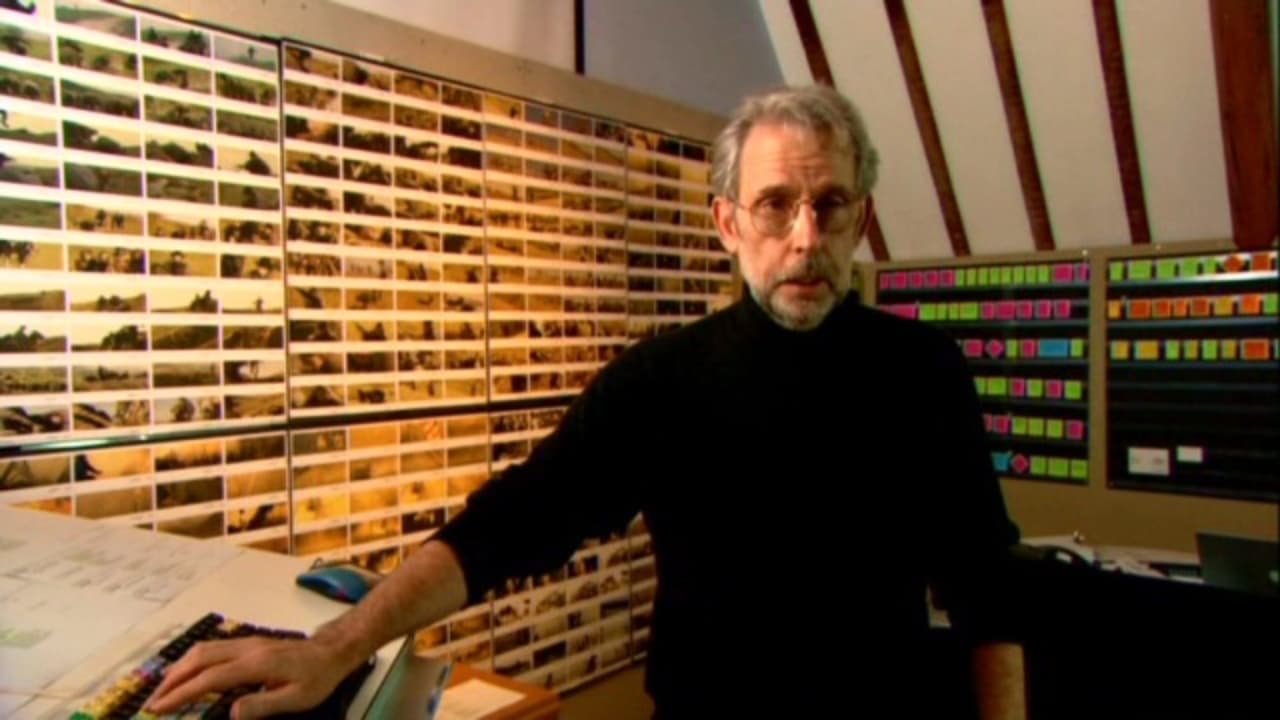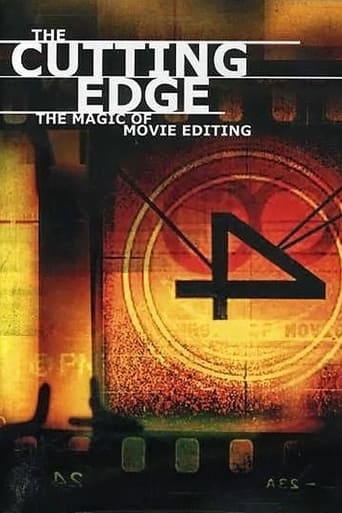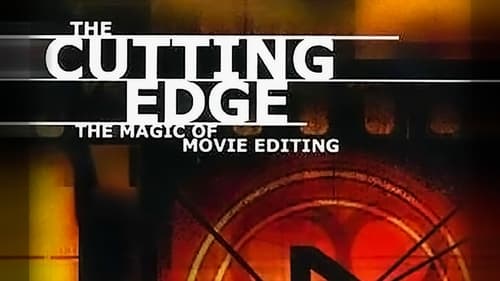


This is a must see documentary for any serious film buff. For all you folks out there that dismiss older films, you may be surprised by your favorite directors such as Quentin Tarantino, Martin Scorsese, Steven Spielberg and James Cameron praising the magnificence of silent films and many classics. Without these classics and the skill involved in making them, today's movies wouldn't be what they are. A brilliant and informative documentary. It very thoroughly explores a movie art form that is often not understood and certainly unappreciated. The editing of a film is very instrumental in its success. However, not many people appreciate it.
... View MoreThis excellent, engrossing and extremely illuminating documentary covers the evolution of the crucial craft of film editing from the silent era to the modern age. Editors initially started out as key, but anonymous contributors to motion pictures who in the 40's and 50's had to staunchly adhere to certain strict guidelines. D.W. Griffith played a substantial part in developing editing as a significant component of movies. The Russian filmmakers of the 20's and the French New Wave directors of the 50's further revolutionized editing by willfully breaking certain established rules. Many different aspects of film editing are extensively covered in fascinating detail: montage, juxtaposition, jump cuts, creating a rhythm, the challenge of cutting chase sequences, the importance of sound, the powerful fusion of sound and image, fragmenting time and space, the difficulty of cutting sex scenes, and the contemporary style of rapid-fire fast cutting. Moreover, we learn that the editor is the most objective person to work on a movie, plays a major role in telling the story, and often works very closely with the director in the post-production process. Such famous directors as Martin Scorsese, Steven Spielberg, Quentin Tarantino, and James Cameron discus the necessity of editors in the whole film-making process. Editors Sally Menke (who was specifically hired by Tarantino to cut "Reservoir Dogs" because he thought a female editor would be more nurturing), Dede Allen, Mark Goldblatt, Zach Staenberg, Craig McKay, Michael Tronick, Donn Cambenn, Alan Heim, and especially Walter Murch all relate great stories about editing various pictures. Kevin Tent in particular has a choice anecdote about how he paid director Alexander Payne 75 dollars to cut a specific sequence in "Election" a certain way that wound up being used in the finished feature. George Lucas hits the nail right on the head when he describes editing as "visual poetry." Kathy Bates provides the perfectly sober and respectful narration. Essential viewing.
... View MoreThis is a remarkable documentary, informative, interesting and successful in clarifying what is, for many, something of a mysterious process. The contributions to film making of directors, actors, designers, cinematographers and sound recordists is self evident, but the film editor's role has seldom been understood nor its importance fully recognised. This documentary is the first to give directors and editors an opportunity to explain exactly what goes on in the editing room and they have done it superbly. What a pity then, that references to the history of film editing woven into this story are cursory, inadequate and in some instances completely wrong. Martin Scorsese refers to Edwin Porters' 1902 film, Life of an American Fireman, as the very first film to be edited using crosscutting as a structuring device, and the commentary supports this view, despite convincing evidence to the contrary that was discovered in 1978. In fact the earliest discovered examples of this practise date from 1906. Equally mistaken is the assertion, made several times in this prize-winning documentary, that D.W.Griffith originated the important editing practise of action matching. In fact there is clear evidence of action matching in a British film made as early as 1903 and Griffith's first film was not made until 1908. There is considerable evidence that Griffith considered action matching to be of very little importance, and when used in his films it is often ill judged and clumsy. All this is curious in a documentary that seeks to explain the history and practise of film editing. One might have expected research on the topic to be as well informed as the comments made by most of the contributors, particularly given that the scriptwriter is Professor Mark Jonathan Harris of the School of Cinema and Television, University of Southern California.
... View MoreI'm a film director/editor from Colombia with more than 45 years in the business and this film is absolutely the best essay on film editing that I've had the good luck of seeing. The examples are great, the explanations on the "unseen" or "hidden art" of editing are perfect, the pacing is just right, etc., etc. The only thing I felt was that it was too short, but then I'm biased on the subject. This should be a MUST SEE FILM for everybody starting out in the business (and not just those who want to be editors).This is a solid "10" for me and I can't understand how anybody would consider it less, except for those mediocre joes who just can't cut it...
... View More